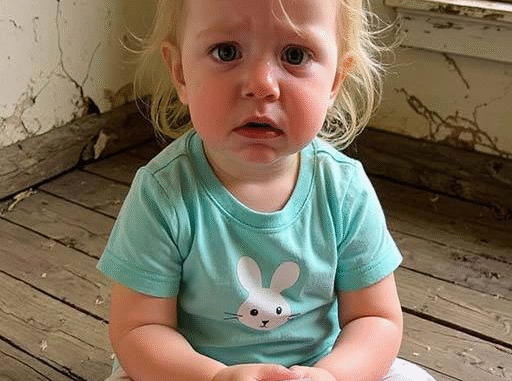
My new neighbors seemed odd from the start, their young son often left to play alone. When they invited me over, I found him abandoned instead, clutching a note that broke my heart. Taking him in cost me my marriage, but it gave me the family I’d always dreamed of.
I’m Anna, 32, and the quiet of our small town of Cedar Grove was shaken when a moving van rolled into the neglected house next door. For years, it had stood empty—its shutters sagging, its yard a jungle of weeds. Peering from my kitchen window, I watched, curious about who’d claim such a place.
A wiry man with a grim face unloaded boxes, moving like he had somewhere else to be. Beside him, a woman drifted, pale and detached, her eyes lost in another world. But it was their son who stopped me cold—a boy, maybe five, with wide, wary eyes, clutching a worn stuffed rabbit. He wandered the yard alone, kicking pebbles, humming softly to himself.
My heart tugged. My husband, Mark, and I had tried for years to have kids, enduring loss after loss until hope faded. Mark shut down every mention of it, changing the subject with a forced smile. But I carried the ache like a stone in my chest. That lonely boy stirred it awake.
One evening, on my usual walk, I spotted him teetering near the busy street, cars speeding by. “Hey, buddy, come back here,” I called, rushing over. His small hand trembled in mine as I led him to his yard. I knocked on their door, expecting a frantic parent.
No one came.
Cautiously, I nudged the door open. The house was sparse—bare walls, a single chair, a faint musty smell. “Hello?” I called. Silence.
I knelt beside the boy. “What’s your name?”
“Eli,” he mumbled, clutching his rabbit tighter.
“Eli, want to play a game?” I asked, desperate to ease his fear. I found a twig and drew circles in the dirt—moons, clouds, a wobbly “E.” His eyes brightened.
“Can I do it?” he asked, grabbing the twig. He scratched a shaky line, then grinned at my nod.
We played for hours, piling stones into a “fort” for his rabbit, laughing as he named it “King Hoppy.” His joy was fragile but real. “Thanks for staying,” he whispered, unprompted.
As dusk fell, his mother appeared, her face blank. “Thanks for watching him,” she said, voice flat. “Come by tomorrow for coffee.” Her invitation felt hollow, but I nodded.
Eli’s glance lingered as she pulled him inside, a quiet sadness in his eyes.
The next morning, I approached their door, its peeling paint rough under my knuckles. No answer. “It’s Anna, from next door,” I called. Nothing.
The door creaked open under my touch. The house was emptier than before, a ghostly shell. In the corner, Eli sat alone on the floor, holding a juice box and his rabbit. A crumpled note lay beside him.
I unfolded it, heart racing: He’s yours if you’ll have him. You’ll love him better than we can.
The words hit like a punch. His parents had left him.
I scooped Eli up, his small body trembling. “You’re safe now, buddy,” I whispered. “You’re coming with me.”
But as I stepped outside, fear prickled—was someone watching? I shook it off, Eli’s arms around my neck grounding me. I couldn’t leave him.
At home, Mark was in the living room, scrolling his phone. “What’s going on?” he asked, eyes narrowing at Eli.
I set Eli down with a snack and cartoons, then handed Mark the note. “I found him alone. His parents left him.”
Mark’s face hardened. “Anna, we agreed—no kids. You know I can’t do this.”
My voice shook. “He was abandoned, Mark. I couldn’t walk away.”
“You should’ve,” he snapped. “I never wanted kids. I said it was my health to spare your feelings.”
The betrayal cut deep. All those years of shared grief, my silent tears—he’d let me believe a lie. “You lied to me,” I whispered.
“Take him back,” he said coldly. “Or we’re done.”
My heart broke, but Eli’s small hand in mine made the choice clear. I packed a bag, took Eli, and left. Mark didn’t stop us.
That night, we stayed at the community center where I taught art classes, sleeping on a cot in the storage room. It wasn’t home, but it was safe.
The next days were a blur of social services and paperwork. Then came a shock: Eli’s biological parents, long gone, had left him a small trust fund tied to the house next door. His foster parents had taken him in for the money, abandoning him when caregiving grew too hard.
With the fund, I secured custody. Eli and I moved into the house, painting over its gloom with bright colors. His laughter filled the rooms, his drawings covered the fridge, and bedtime stories became our ritual. The first time he called me “Mama,” my heart swelled until I sobbed.
Mark started showing up—bringing toys, fixing a leaky faucet, reading to Eli. I held onto my hurt, but seeing him try, softly asking Eli about “King Hoppy,” gave me pause. Maybe hearts could shift.
Eli and I were a family, our home warm and alive. Mark was on the edges, inching closer. I didn’t know if I’d fully forgive him, but for Eli’s sake, I let hope flicker.
If this story moves you, share it. Sometimes, family finds you when you least expect it. 🌈